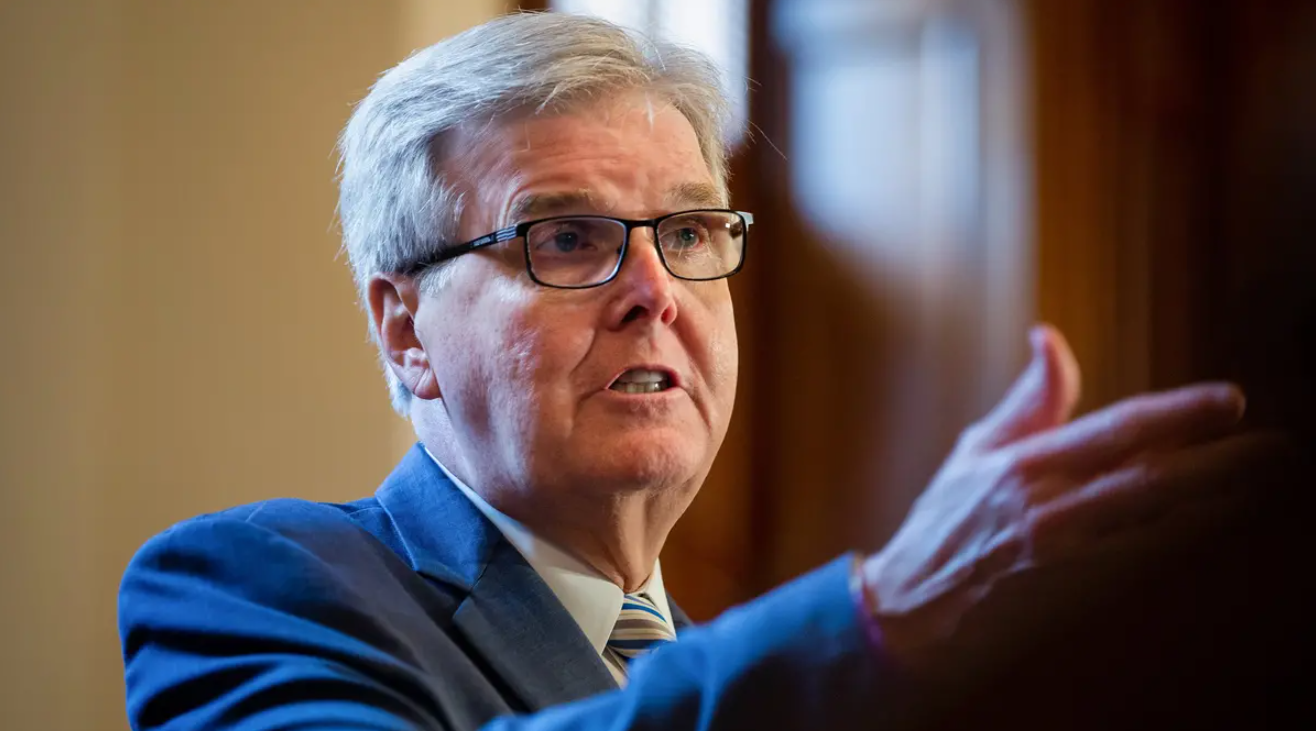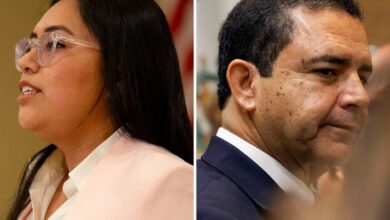
Six Republicans are running for lieutenant governor in primary election
By Bethany Blankley | The Center Square
Republicans in Texas will have six lieutenant governor candidates to choose from in the primary election scheduled for March 1.
Incumbent Lt. Gov. Dan Patrick is running for re-election against the most challengers he’s ever faced, although none have anywhere near his war chest of $8.8 million.
A former sports radio broadcaster originally from Maryland, Patrick filed for bankruptcy after his Houston-area business suffered from the Texas economic crash of the 1980s. He eventually ran for state senate and won. He represented the 7th District, primarily in northwest Harris County, from 2007 to 2014. Texans for Fiscal Responsibility gave him an overall B grade for his voting record on key budget, taxation, and fiscal issues.
When announcing he was running for a third term, Patrick said he was proud of the work of the Texas Senate during the last four legislative sessions.
They together worked “to protect life, improve education, increase teacher pay, protect the rights of students and parents in education, ban the teaching of Critical Race Theory, expand access to healthcare, support the Second Amendment, invest more money in border security,” and more, he said. Together, they worked to “unleash the Texas economy … to protect our way of life centering on individual freedom and liberty.”
Patrick has been endorsed by former President Donald Trump, U.S. Sen. Ted Cruz, and a range of industry groups.
Three of his challengers have been heavily involved in grassroots conservative activism in the state; two are political neophytes.
The only female candidate running against Patrick, Trayce Bradford, is a grassroots leader and activist from Tarrant County. She was the former president of the Dallas Eagle Forum and the Texas Eagle Forum and is a Texas Conservative Grassroots Coalition leader.
She currently serves as the Eagle Forum National Issues Chair on Human Trafficking and has received awards from Eagle Forum founder Phyllis Schlafly and from the Center for Security Policy in Washington, D.C. Her platform includes religious liberty, banning taxpayer-funded lobbying, stopping government overreach, prioritizing Texas energy independence, and election reform, among others.
When she announced her candidacy at a Grassroots America – We the People event in Tyler, Texas, she said she was running because of “the ever-growing government encroachment into our lives and liberties as citizens,” among other issues that she said necessitated new leadership.
“Whether it be protecting our children, our individual medical rights, or small businesses, there are critical decisions that must be made and not continually kicked down the road,” she said, according to Texas Scorecard. “The time is now for decisive action and unwavering courage to stand up for Texan’s inalienable rights given by our Creator, protected in our constitutions, both state and federal and under the rule of law. We must respect the role of self-governance and value the heritage of this great state and her citizens.”
Businessman Todd Bullis is also running for lieutenant governor. As a precinct chair in Denton County, he worked to censure Gov. Greg Abbott for closing certain businesses through executive order when he shut down the state for roughly a year over the coronavirus. This resulted in roughly 10,000 businesses being forced to close, Texas leading the nation in bankruptcy filings, and the greatest number of Texans filing for unemployment in state history.
Dallas salon owner Shelley Luther went to jail for defying a local shutdown order, enabled by the state executive order, which stipulated jail time and financial penalties for violators. Lt. Gov. Patrick paid her legal fees, and the state Supreme Court threw out a contempt of court order against her. But the lockdowns became a driving force for new candidates running for office, including Patrick’s challengers, and Luther, who’s running for Congress. She ran in a special election for Texas State Senate District 30 in 2020 and lost.
Bullis, a delegate to the last two Texas Republican Conventions, is hoping to “expose and oppose all tyrants on the federal and state level” and to “bring a Biblical worldview back to Texas.” His platform includes abolishing abortion, election integrity, banning taxpayer-funded lobbying, religious freedom, and supporting Texas becoming an independent nation again, among others.
Daniel Miller, a technology consultant and president of the Texas Nationalist Movement, is also running. Author of “TEXIT: Why and How Texas Will Leave The Union,” his platform includes making Texas an independent nation, securing the border, abolishing property taxes, curtailing executive overreach, protecting the right to life, election integrity, among others.
Aaron Sorrells, a small business owner, is running after “observing for years how Dan Patrick has failed to protect the individual rights and freedom of Texans to live their lives free from excessive government interference. While Patrick pretends to be a conservative, his ‘principled conservatism’ consists of making backroom deals in the interests of his donors to kill important conservative legislative priorities in committee and to prevent the ‘country club’ known as the Texas Senate from being accountable to the people who elected them.”
He hopes to bring “transparency and accountability back to the Texas Senate by forcing floor votes on all conservative legislation so the people of Texas will know who serves their interests and who serves the interest of the corrupt political establishment in Austin.”
His platform includes eliminating property taxes, securing the southern border, election integrity, reforming education and term limits, among others.
Zach Vance, a retired Marine and Purple Heart recipient, who recently worked at an Austin cable news organization, is also running.
“Texans are in desperate need of new leadership,” he said, leaders who “actually values Texans” and what they care about. Texas’ leaders should fix problems that stem “from bad government policy,” he added. His platform includes reducing property taxes and housing costs by first eliminating appraisal districts, increasing teacher pay, improving public safety, and reforming health care, among others.
The winner of the Republican primary will run against the winner of the Democratic primary.
Early voting begins Feb. 14.






